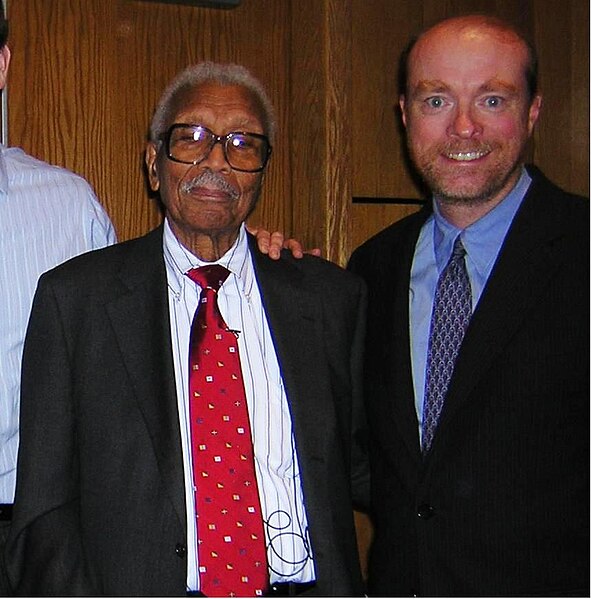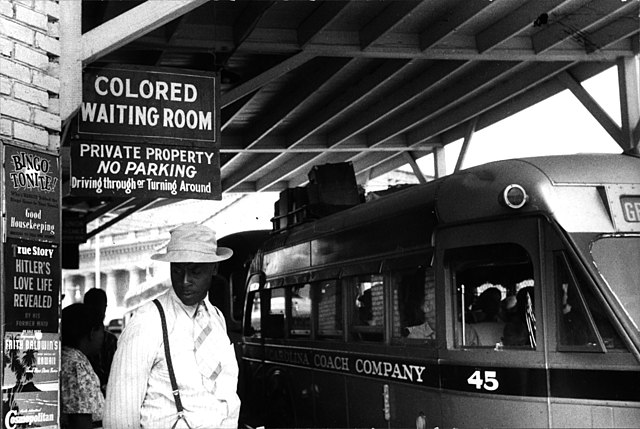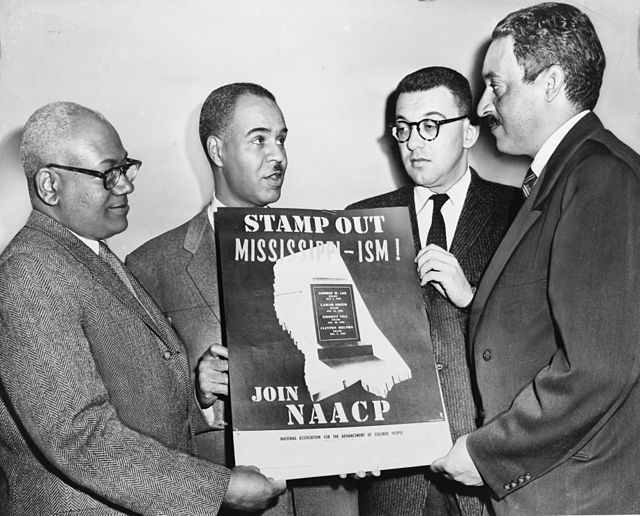National Association for the Advancement of Colored People v. Alabama, 357 U.S. 449 (1958), was a landmark decision of the US Supreme Court. Alabama sought to prevent the NAACP from conducting further business in the state. After the circuit court issued a restraining order, the state issued a subpoena for various records, including the NAACP's membership lists. The Supreme Court ruled that Alabama's demand for the lists had violated the right of due process guaranteed by the Fourteenth Amendment to the United States Constitution.
Lead attorney on NAACP v. Alabama, Judge Robert L. Carter (left), with the dean of Georgetown University Law Center, William Treanor
The National Association for the Advancement of Colored People (NAACP) is a civil rights organization in the United States, formed in 1909 as an interracial endeavor to advance justice for African Americans by a group including W. E. B. Du Bois, Mary White Ovington, Moorfield Storey, Ida B. Wells, Lillian Wald, and Henry Moskowitz. Over the years, leaders of the organization have included Thurgood Marshall and Roy Wilkins.
Founders of the NAACP: Moorfield Storey, Mary White Ovington and W. E. B. Du Bois
An African American drinks out of a segregated water cooler designated for "colored" patrons in 1939 at a streetcar terminal in Oklahoma City.
Sign for the "colored" waiting room at a bus station in Durham, North Carolina, 1940
NAACP leaders Henry L. Moon, Roy Wilkins, Herbert Hill, and Thurgood Marshall in 1956





